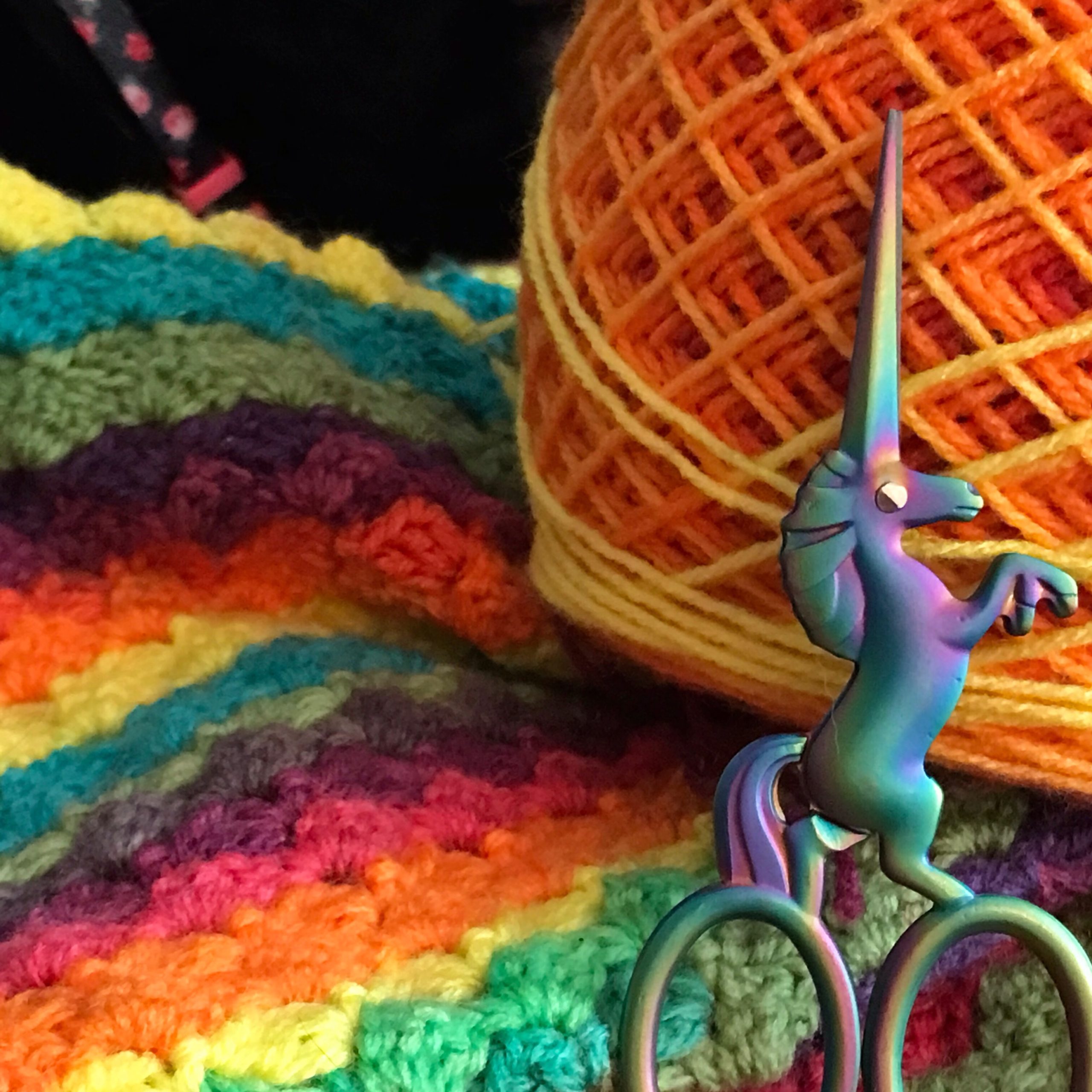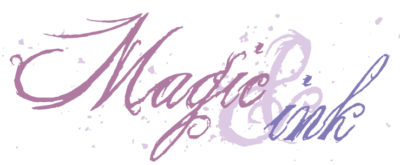
It’s really cold in my office lately, so I decided to crochet the yarn a friend gave me for Christmas into a pair of wrist warmers for work. The pattern I choose is simple, with a fun dragon-scale detail at the cuff — a perfect match for the mottled green hue of the yarn, and just the right touch of magic without being too flashy.
When I was about halfway through the first mitt, I slipped it over my wrist to see how it would fit. You have to be careful with gloves and mittens; if they’re too big, they flop around and get in the way, but if they’re too small, they can squeeze uncomfortably. In this case, they were just a bit too tight. It’s not a fault of the pattern – I just have big wrists, and a tendency to crochet tightly. While crocheted items do have a measure of stretchiness to them (not so much as knitting), the cuff was just tight enough around my wrist that I thought it wouldn’t be comfortable while typing (which is what I do most of the day). I can easily correct the problem by using a slightly larger hook.
But to do that, I’ll have to pull out all my stitches and start over. Yarn crafters call this “frogging” because ripping out stitches sounds like a frog croaking: riiipppppppit!
Unfortunately, there’s no fun sound associated with ripping words out of a manuscript while you are editing. The tap of the delete key sounds exactly like the tap of the letter keys.
Having to scrap large sections of a work in project can be incredibly disheartening, especially when there is nothing wrong with the words in and of themselves. You can write the beautiful sentences, gorgeous paragraphs, entirely brilliant chapters — but if the fit’s not right, they have to be ripped out.
You might be tempted to live with an imperfect manuscript, especially if it’s a subtle problem that no one else would notice, just like I could have lived with my slightly too-tight wrist warmers. But I wouldn’t have been happy with those warmers.
Sometimes, you just have to start over.
